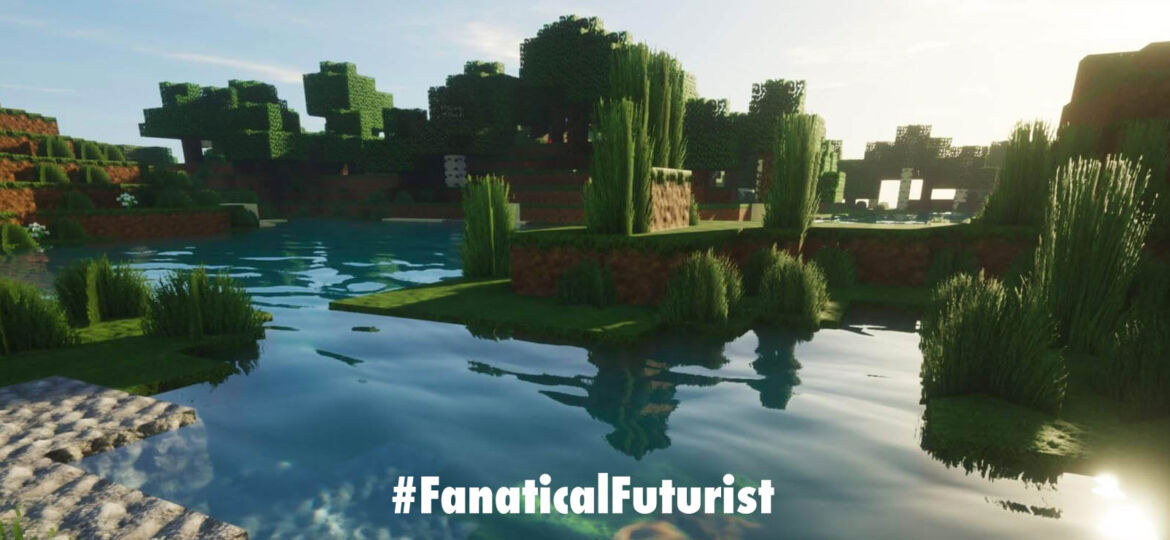
WHY THIS MATTERS IN BRIEF
As AI tools become better it’s getting easier for us to turn even the simplest graphical designs into stunning hi def visions.
If you were to make a list of all the graphically intense, amazing looking games in the world, Minecraft wouldn’t be on it. That’s not automatically a bad thing by any means, after all, the success of games like Dwarf Fortress is proof there’s a market for world simulators that don’t set things on fire graphically. But, as we enter an age where increasingly we can use Artificial Intelligence (AI) to “fill in the blanks,” or, in this case, perform path tracing, as well as create its own content, whether it’s creating new Virtual Reality worlds in real time, or fake celebrities, a recent video has shown just how gorgeous Minecraft can be with a little help. And it’s worth taking a look at if you ever play the game, or, more likely, your kids do.
The new Minecraft mod pack, SEUS (Sonic Ether’s Unbelievable Shaders) is designed to work in conjunction with either OptiFine or GLSL Shaders Mod, and while it’s been described as ray tracing in some reports, it’s actually using a technique called path tracing. I’m going to let graphics programmer Sebastian Dusterwald explain the difference:
they added ray tracing in the new minecraft shader dev build i am absolutely shitting myself pic.twitter.com/sEbY78Vuz5
— notglacier (@notglacier) March 30, 2019
“In ray tracing a ray is sent out from the virtual camera into the scene and traced until it intersects with a solid body. At this point a ray is cast to each of the light sources in the scene to calculate illumination and surface shading is calculated for the intersection point. If the surface is transparent the ray is sent out further into the scene, possibly at an angle to simulate refraction. If the surface is reflective a ray is sent out at an angle away from the object…,” he says, adding, “Meanwhile a path tracer is like a ray tracer on steroids. Instead of sending out one ray it sends out tens, hundreds or even thousands of rays for each pixel to be rendered. When it hits a surface it doesn’t trace a path to every light source, instead it bounces the ray off the surface and keeps bouncing it until it hits a light source or exhausts some bounce limit. It then calculates the amount of light transferred all the way to the pixel, including any colour information gathered from surfaces along the way. It then averages out the values calculated from all the paths that were traced into the scene to get the final pixel colour value.”
Path tracing can be used for effects that ray tracing still has to fake, according to Dusterwald. Minecraft’s baseline simplicity may actually be working to the game’s advantage here. A relatively simple game engine makes this kind of graphical rendering easier to handle, even for less-powerful cards.
Technologies like ray tracing and path tracing can give a classic game a gorgeous new look when deployed properly, and I’ll be curious to see where the mod goes from here. But in the meantime suck up the Minecraft vibes and amaze your kids with it.
















